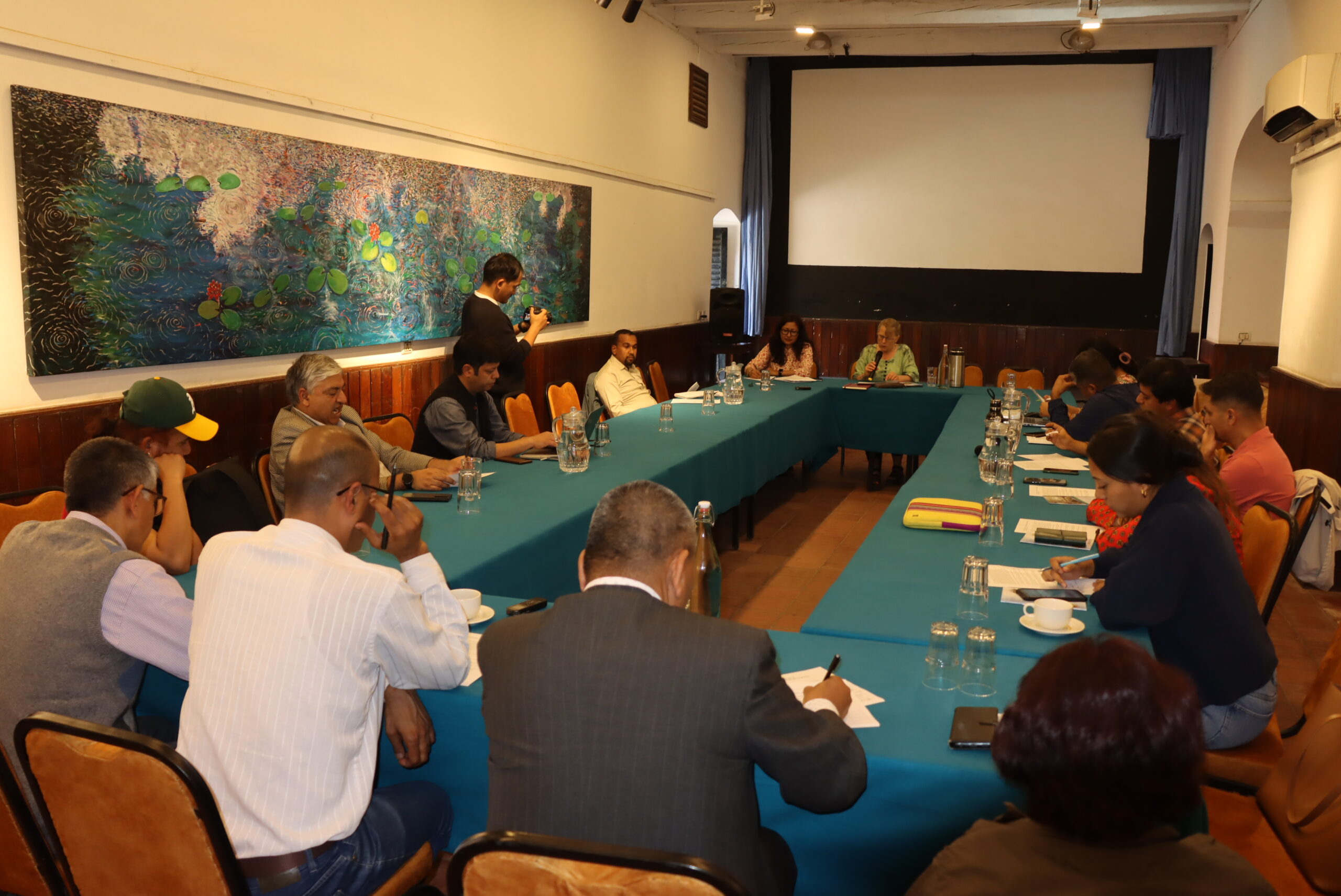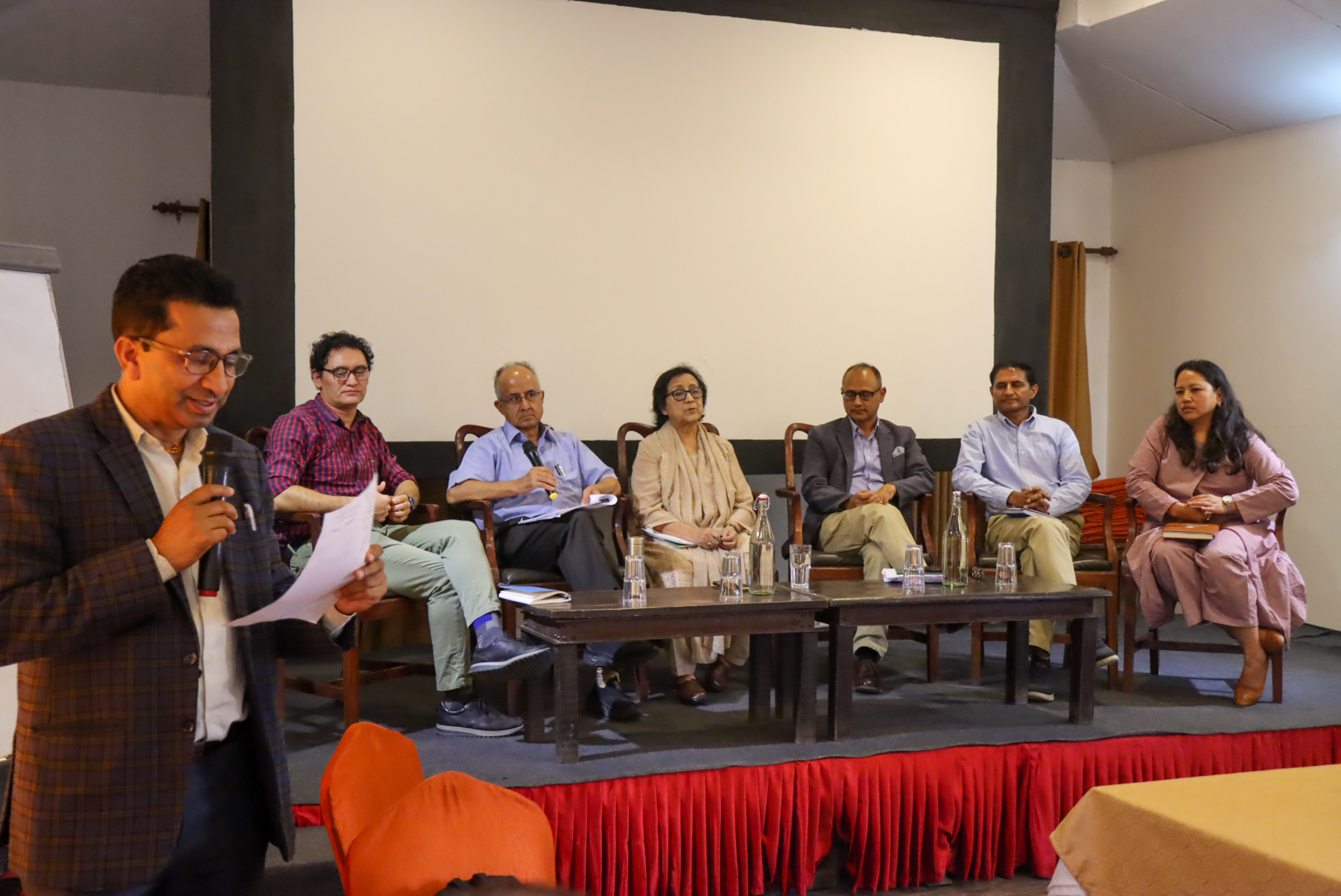Southasia Institute of Advanced Studies (SIAS) organized a reflective workshop on “Issues and Opportunities of Community Forest Management” on 20th December 2022 in Kathmandu. Bringing together a diverse set of actors including researchers and policy makers, the workshop aimed to unpack the challenges of collective actions on forestry in recent years, create a space for open dialogue and draw insights for future policies and action towards the better management of Community Forests (CF) in Nepal.
Dr. Dinesh Paudel, Associate Professor at the Appalachian State University and Senior Research Fellow at SIAS, gave an opening presentation and provided reflections on recent collective action challenges in CF in the face of changing socio-economic and political contexts. He presented reflections and insights from the ongoing research and the recent field visit in Sindhuli and Ramechhap and unpacked issues that forest user groups are facing on the ground particularly related to the increasing influence of forest bureaucracy on forest management and shared that the situation has become worse after the implementation of scientific forest management. He shared that communities are demotivated and discouraged to maintain collective action. He highlighted that communities now want concrete economic incentive, and there is a need of more productive management of forests.
The presentation was followed by a plenary discussion moderated by Dr. Dil Khatri, Executive Director of SIAS. During the session, some participants pointed to the problem caused by the ‘one size fits all’ approach of CF institutions in the mountains and resource rich region of Tarai and Chure. Others pointed to the need for a stronger civic movement to counter the increasing bureaucratic dominance on forest management and restrictions posed to CFUGs on carrying out the harvesting of timber. Few participants pointed to the problem that the local right movement is weakening.
The take-home message of the workshop was that there is a need for reimagining collective action in the context of changing forest-people relations. The participants pointed to the need for generating financial resources to incentivize local collective action. The discussion ended with the conclusion that we need more open dialogue towards revisiting some of the institutional constraints and resolving some practical hurdles that demotivated local communities.




